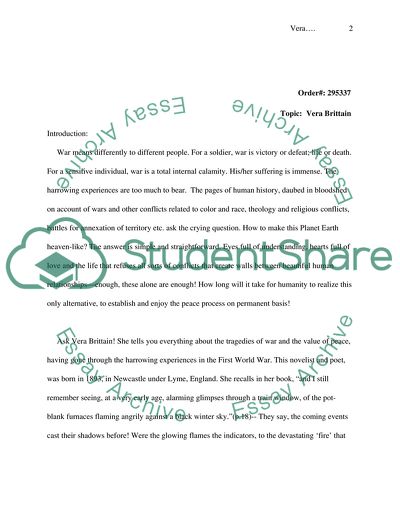Cite this document
(“Vera brittain Essay Example | Topics and Well Written Essays - 1000 words”, n.d.)
Retrieved from https://studentshare.org/miscellaneous/1554480-vera-brittain
Retrieved from https://studentshare.org/miscellaneous/1554480-vera-brittain
(Vera Brittain Essay Example | Topics and Well Written Essays - 1000 Words)
https://studentshare.org/miscellaneous/1554480-vera-brittain.
https://studentshare.org/miscellaneous/1554480-vera-brittain.
“Vera Brittain Essay Example | Topics and Well Written Essays - 1000 Words”, n.d. https://studentshare.org/miscellaneous/1554480-vera-brittain.


